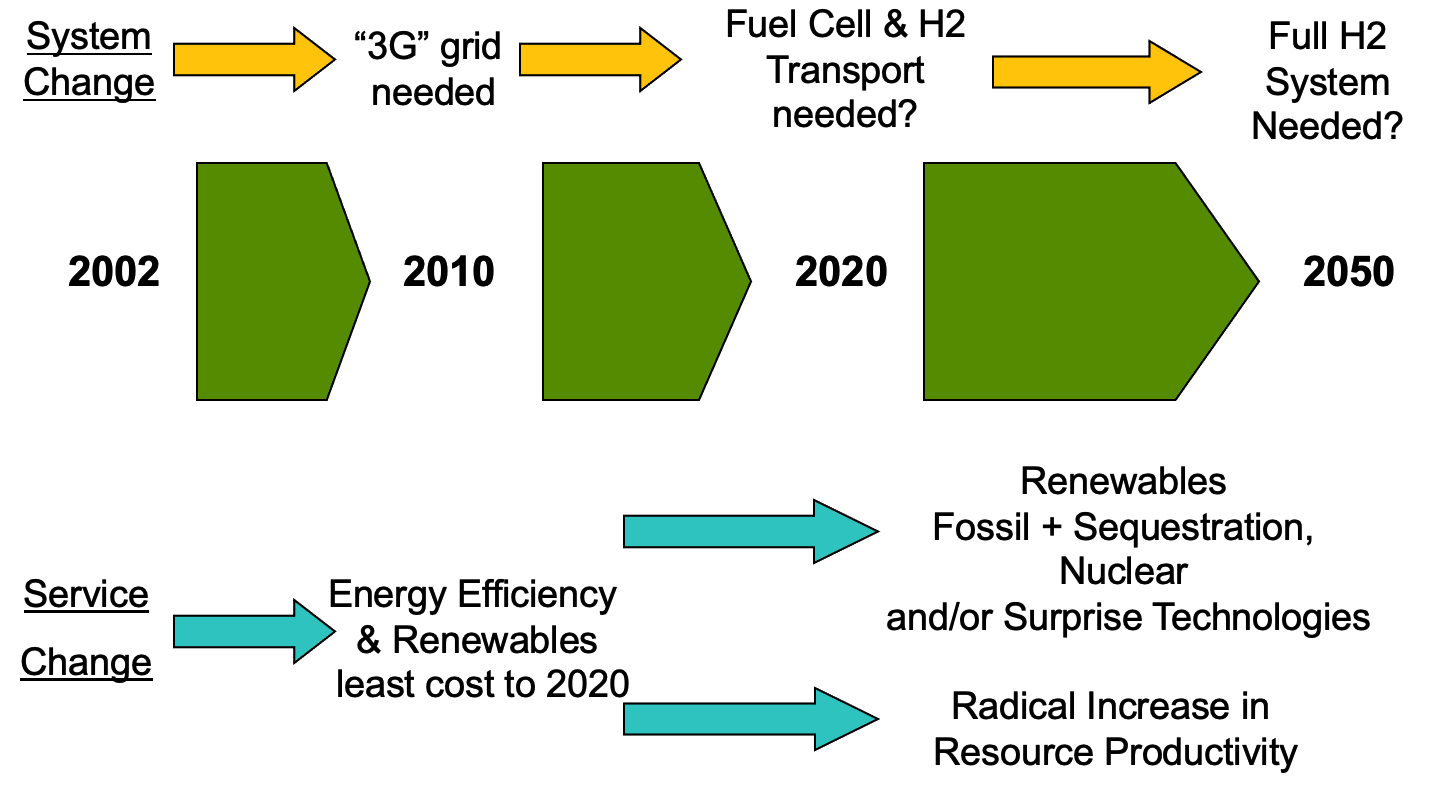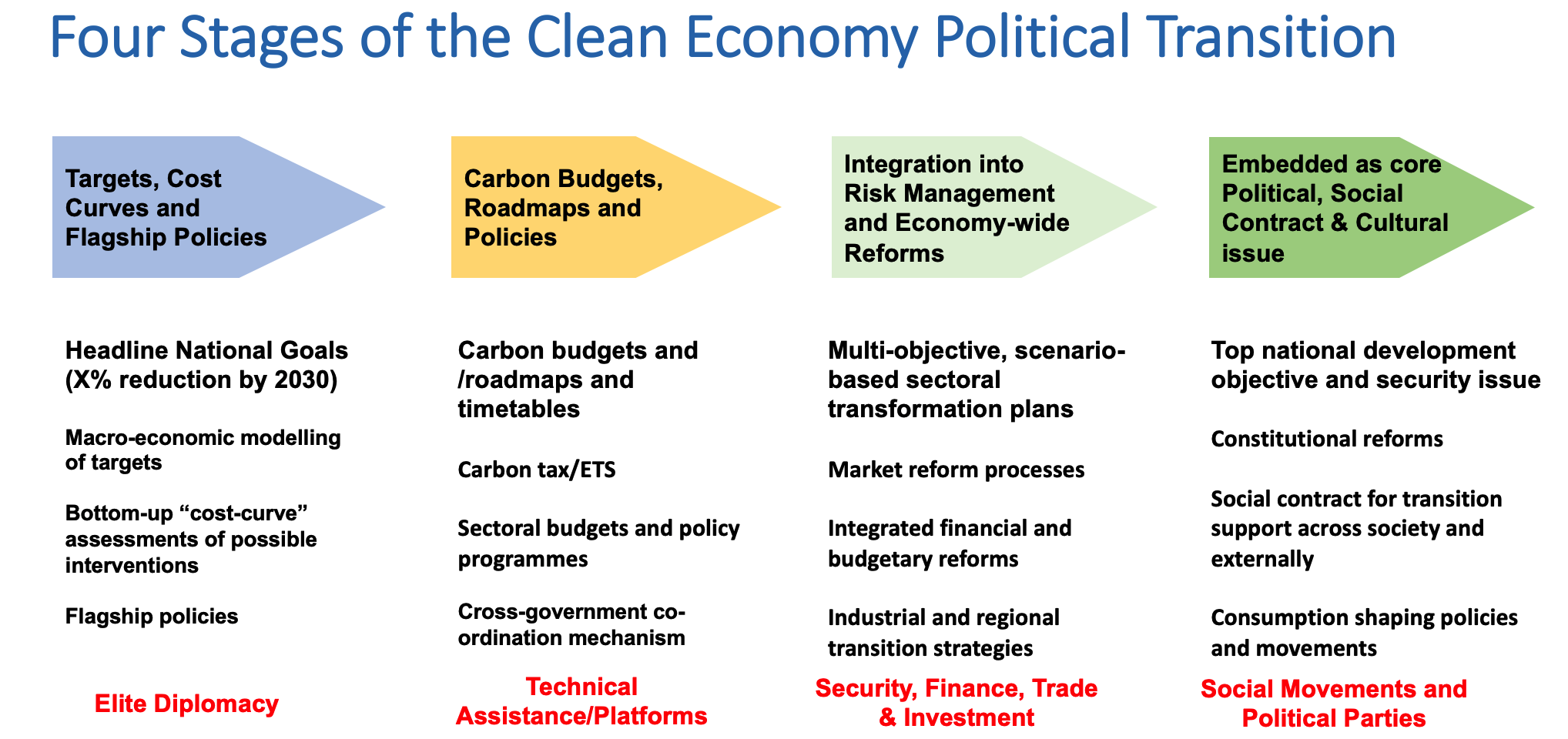Simplified 2050 Low Carbon Roadmap for the UK.
PMSU, 2002
Climate Transition Governance
Climate change presents a new economic governance challenge to fundamentally change most of the current elements of energy, infrastructure, industry & agriculture to novel technological and business systems inside a fixed time period. New approaches to economic analysis, policy and governance are needed to support effective and efficient action.
This challenge its particularly large for advanced economies which under the UNFCCC must move first but have dismantled most of their economic planning and intervention institutions since the 1980s. Developed countries have little practical experience of intervention to shape markets and investment patterns at a macroeconomic scale.
In the UK Prime Minister’s Strategy Unit, Nick Mabey was involved in shaping UK energy strategy and then responsible for monitoring delivery of the 2003 Energy White Paper which set one of the first 2050 economy wide decarbonisation targets. This experience showed the weaknesses in governance systems using energy models to define discrete mitigation policies based on “tonnes of carbon” abated.
After initial delivery failures, Nick was involved in establishing new cross-government governance structures including the “Office of Climate Change”. The OCC took a new approach focusing on incentive packages needed to drive market & sectoral transformations supported by innovation and infrastructure pathways. The OCC was a precursor to the UK’s independent Climate Change Committee which now is one of over 20 similar climate governance bodies globally. E3G was appointed as secretariat to the International Climate Councils Network in 2024.
In E3G Nick worked with partners to developing detailed roadmaps for the EU and advocated for coherent governance principles, laws and institutions to support coherent EU climate, energy security, resilience and economic policies. Of particular importance in the creation of “observatory” institutions to give independent and timely monitoring of delivery progress in areas like clean investment.
in addition to focusing on the policy and governance aspects of delivering long term climate transformations, Nick Mabey has increasingly focused on the political economy of transitions and how to embed climate change plans inside legislative and public accountability processes and democratic debate order to manage trade-offs and build a resilient “social contract” for rapid transition.
As climate action shifts from target-setting to delivery in most G20 countries the gaps and weaknesses in transition governance will become increasingly apparent. Only though more transparent learning within and across countries will institutions be abler to reform and adapt to the needs of the unprecedented climate transition.

